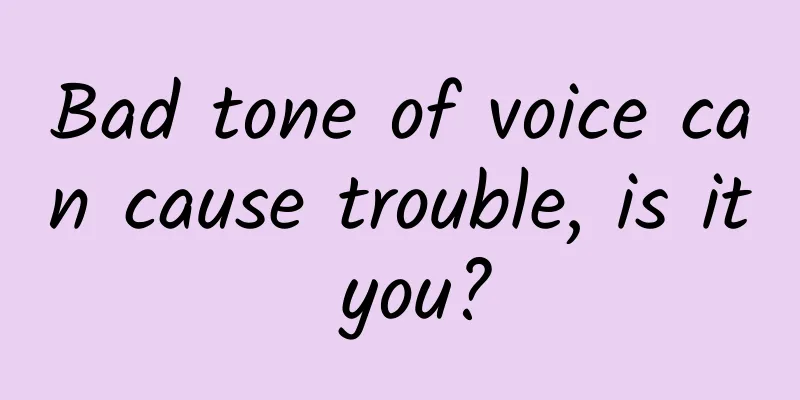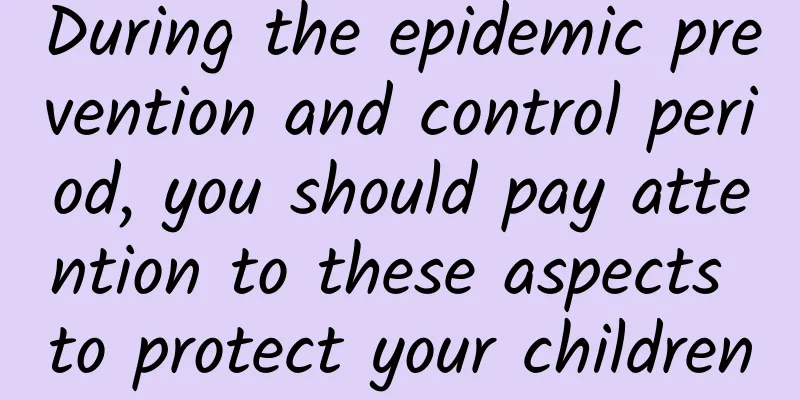Bad tone of voice can cause trouble, is it you?

|
In life, we cannot avoid dealing with people all the time, but a simple "hello" when meeting someone sometimes not only fails to leave a good impression, but also makes the other person frown, thinking to themselves: This person has a really bad tone! Yes, I believe you have already guessed that this "bad breath" is not that "bad breath". Today we will take a look at this unpleasant "bad breath" or "bad breath", what is wrong with the human body, and how to prevent and treat it? 1. What are the causes of bad breath? Bad breath, or halitosis, refers to the odor emitted from the mouth or other air-filled cavities such as the nose, sinuses, and pharynx. This odor can seriously affect people's social interactions and mental health. The WHO has reported halitosis as a disease. Surveys show that the prevalence of halitosis in China is 27.5%, and about 10% to 65% of people worldwide have suffered from halitosis. It can be seen that the problem of halitosis should be taken seriously by us, and we should not ignore it just because "speaking has a little odor." As for the causes of bad breath, we can get clues from the classification of bad breath. First of all, bad breath is divided into physiological bad breath and pathological bad breath. Physiological bad breath is caused by eating irritating foods such as onions, garlic, tobacco and alcohol, without any disease. These substances release volatile compounds during digestion and stay in the mouth for a period of time, causing bad breath. Then there is poor oral hygiene: not brushing your teeth or not cleaning your mouth in the right way, which makes the corners of your mouth dirty, and bacteria will dine in the food residues, producing a foul odor. Image source: Pixabay Pathological is the opposite of physiological, and refers to bad breath caused by certain diseases. Pathological halitosis can be further divided into oral halitosis and non-oral halitosis. The reason for this division is that according to statistics, 80% to 90% of halitosis comes from the mouth. Therefore, oral problems are worth discussing separately. Non-oral halitosis includes problems with the digestive system (such as the stomach), etc., which will be discussed in detail below. 2. From the mouth The first thing to talk about is pathological halitosis: untreated caries, abnormal structure, gingivitis, periodontitis and oral mucosal diseases in the mouth may cause halitosis. Among them, caries (tooth decay) and periodontal disease are the most common related diseases. There are often food residues in the cavity that cannot be cleaned by brushing and rinsing. After bacterial fermentation and decomposition, it will produce odor. Pulp necrosis or suppurative pulpitis can also produce odor without treatment (how can it be odorless if it is suppurated). Patients with periodontal disease are often accompanied by a large amount of tartar and plaque, which are then fermented by bacteria to produce hydrogen sulfide, indole and ammonia gases, which can also produce odor. Image source: Pixabay Secondly, the quality and quantity of saliva also play a role in the production of bad breath. The presence of saliva in the mouth helps clean and flush bacteria, and also has an antibacterial effect. When the mouth cannot produce enough saliva (insufficient quantity) or the effective ingredients in the saliva are reduced (poor quality), bacteria will multiply and decompose the organic components in food residues, producing a large amount of volatile sulfides, indoles and other substances, increasing the risk of bad breath. 3. Outside the oral cavity After talking about oral halitosis, let’s talk about non-oral halitosis. Diseases of the tissues adjacent to the oral cavity, such as purulent tonsillitis and sinusitis, can produce purulent secretions and emit odors. Since the nasal cavity and oral cavity are connected, it will naturally lead to bad breath in the mouth. Common clinical digestive system diseases such as acute and chronic gastritis and peptic ulcers will spread sour and smelly odors from the stomach through the esophagus to the mouth. Patients with diabetic ketoacidosis can exhale acetone-smelling gas due to the increase in ketone body content, which can be described as the smell of rotten apples; patients with uremia lose kidney function and metabolites such as urea nitrogen and creatinine cannot be excreted. Ammonia is produced after liver and kidney metabolism, which reaches the respiratory tract through blood circulation and is excreted from the respiratory tract, smelling like ammonia. In addition, diseases such as leukemia, vitamin deficiency, and heavy metal poisoning can all cause bad breath. Image source: Pixabay Therefore, having no problems with the oral cavity does not mean that you are safe. When you cannot find the oral cause of bad breath, you should consider other diseases and go to the hospital for relevant examinations in time. 4. Get rid of bad breath How should we prevent and treat bad breath in our daily lives? First of all, we need to develop good oral hygiene habits: brush your teeth correctly, use dental floss or interdental brushes to clean your teeth and gums. Brush your teeth twice a day for at least five minutes each time. At the same time, change your toothbrush regularly to avoid bacterial growth. If conditions permit, you can also use oral cleaning products, such as mouthwash and fluoride toothpaste, which can help inhibit bacteria and prevent caries, reduce bad breath, and keep your mouth clean. Don’t forget to have regular oral check-ups: Go to the dentist for regular oral check-ups and cleanings to detect and treat oral problems (such as gingivitis, mouth ulcers, tooth decay, etc.) early to ensure oral health and reduce the risk of bad breath. Image source: Pixabay Secondly, you should pay attention to your daily living habits, such as minimizing the intake of foods and drinks that can cause bad breath, such as onions, garlic, spicy foods, tobacco and alcohol. Key points: Smoking is one of the common causes of bad breath. Quitting smoking can significantly improve the smell of your mouth and is good for your overall health. Drinking plenty of water can not only detoxify, but also help stimulate saliva production, keep your mouth moist, and reduce the occurrence of dry mouth. In terms of diet, we should eat a balanced and regular diet, which will help stimulate saliva secretion and avoid overeating or fasting for too long. Image source: Pixabay In short, there is not only one reason for bad breath, and we should never ignore it. It may be a warning from our body: oral problems, digestive diseases, or bad living habits. No matter which of the above, it means that our health is threatened. Therefore, when the bad breath problem continues to be unresolved, it is best to consult a dentist or gastroenterologist for professional help. Source: Chongqing Science and Technology Museum Author: Yingjiang, medical major Review experts: Huang He, Li Chunli, Chen Tao, Xu Xiaoping Statement: Except for original content and special notes, some pictures are from the Internet. They are not for commercial purposes and are only used as popular science materials. The copyright belongs to the original authors. If there is any infringement, please contact us to delete them. |
<<: [Health Lecture] Same foot pain, different causes
>>: What should I do if sand gets into my eyes?
Recommend
Three indicators of cervical cancer
When talking about cervical cancer, most women wi...
Women with mysophobia are difficult to get along with
How does it feel like for a man to marry a woman ...
Eight symptoms of blood deficiency in women
Women with qi deficiency or blood deficiency will...
How do menopausal women supplement estrogen? There are many ways!
Estrogen is extremely important to women's ph...
How to treat menstrual disorders caused by obesity
Irregular menstruation in women is also called me...
Why is my genitals red, swollen and painful?
The female vagina is a relatively private area, b...
Can I still breastfeed while pregnant?
Some women have misunderstandings about breastfee...
Pictures of inflammation of episiotomy wound
Many women who choose natural childbirth do so un...
What kind of foot bath is good for dysmenorrhea?
Women are generally irritable during menstruation...
What are the clinical manifestations of acute cervicitis?
Once the cervix becomes inflamed, it tends to be ...
National Disability Prevention Day | During the epidemic, pay attention to children's physical and mental development and prevent disabilities
August 25 this year is the fifth National Disabil...
Causes and treatment suggestions for morning sickness at night
What is morning sickness at night? Many people ma...
What to do if you have vaginal bleeding from uterine fibroids
The uterus is a relatively important reproductive...
When is the best time to take Pueraria powder for breast enhancement?
Pueraria powder is a common food in daily life. I...









